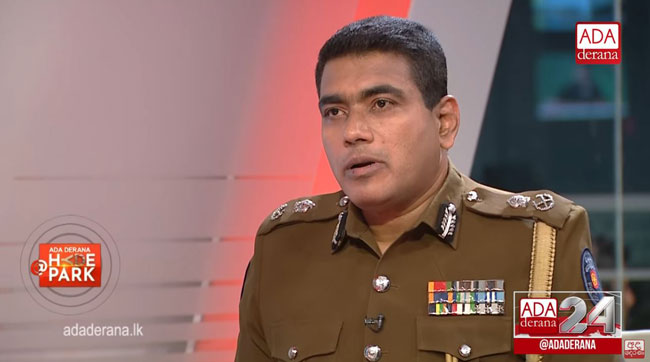Not divulging information makes tracing difficult - DIG Ajith Rohana
October 12, 2020 06:09 pm
DIG Ajith Rohana says while they are confident on being able to control the prevailing COVID-19 situation in the country, the health experts at the Epidemiology Unit of the Health Ministry will have the final say in whether or not to declare the presence of a community spread of the virus.
However, it is visible that there is a control in the spread of the virus as they have not found any further cases in the curfew-imposed areas, he said. “But it doesn’t mean we don’t have worries”, he added.
Speaking to Indeewari Amuwatte on the Ada Derana 24 current affairs programme ‘@HydePark’, DIG Rohana stated that the State Intelligence Service (SIS) is the main agency that assist health authorities to trace and track down COVID-19 cases and the spread of the virus.
The main issue in the operational process of controlling the virus-spread is tracing the close contacts of the COVID-19 infected patients as some do not divulge accurate information on their whereabouts, according to the DIG.
One reason behind the resistance in people for divulging information is the stigma associated with the virus, said DIG Rohana.
He points out that contracting COVID-19 does not mean that the infected person had engaged in bad practices.
Possible discrimination from the society makes people reluctant to divulge information or be subjected to testing, DIG Ajith Rohana stated.
He added that Sri Lankans have not yet understood the gravity of the COVID-19 pandemic.
“If a social media post divulges the identity of a COVID-19 patient, with their face and whereabouts, it is considered damaging to the quarantine procedure. People become reluctant give samples for PCR tests. Therefore, if a person obstructs a quarantine procedure, it is an offense.”
Speaking on the difference between the quarantine curfew and a normal curfew, DIG stated that the quarantine curfew is not a conventional curfew.
Under a normal curfew people are not allowed to go to the road or a thoroughfare but able gather at residences in the vicinity and have small gatherings with neighbors. However, under the quarantine curfew, even the neighbors cannot meet each other.
“It is a quarantine order. Once it is imposed, a person going against that notice is a law-breaker. He could be dealt under the criminal law of the country. He could be punished with a 03-month rigorous imprisonment and a Rs 10,000 fine. He could also be arrested without a warrant.”












